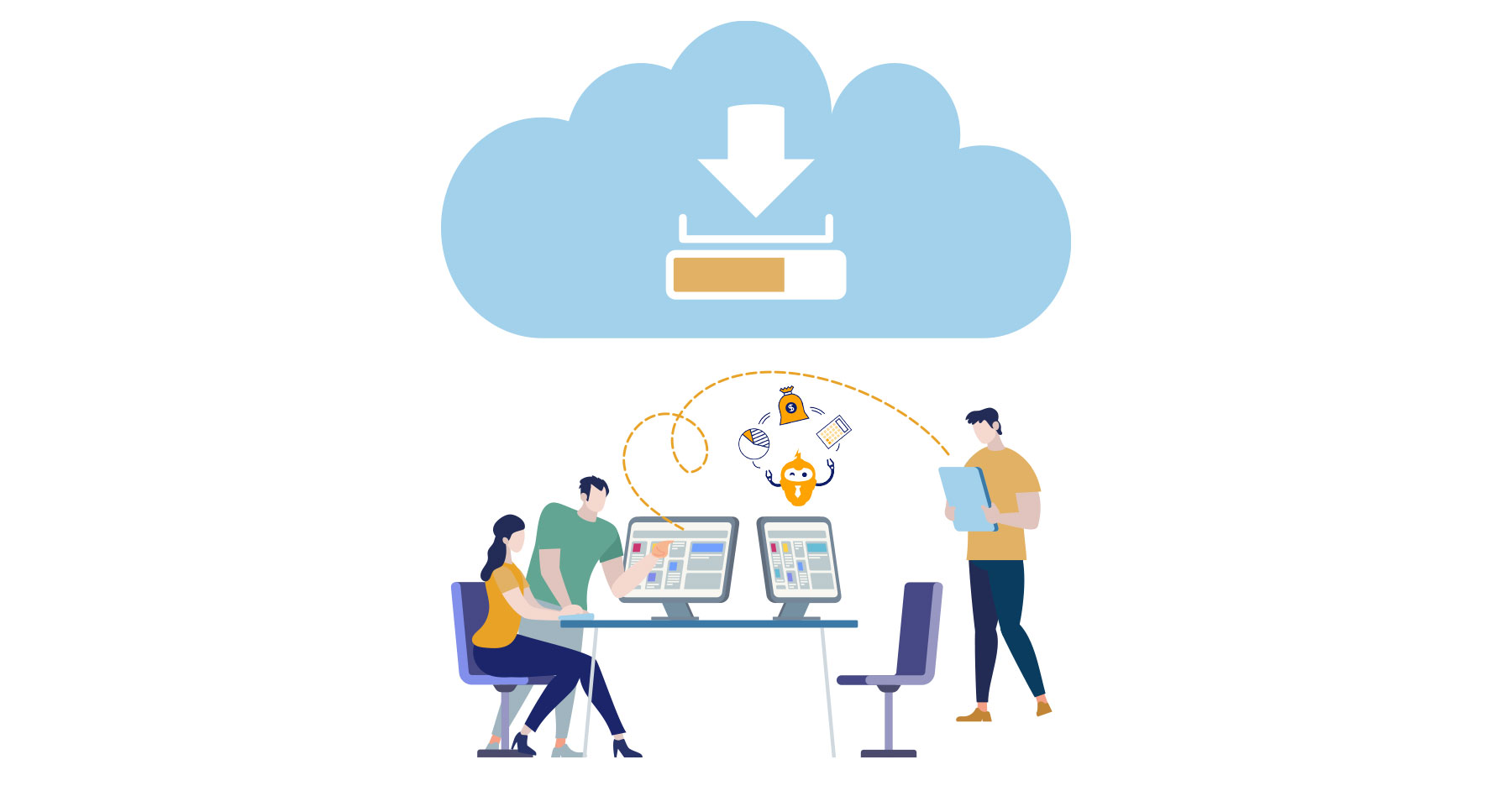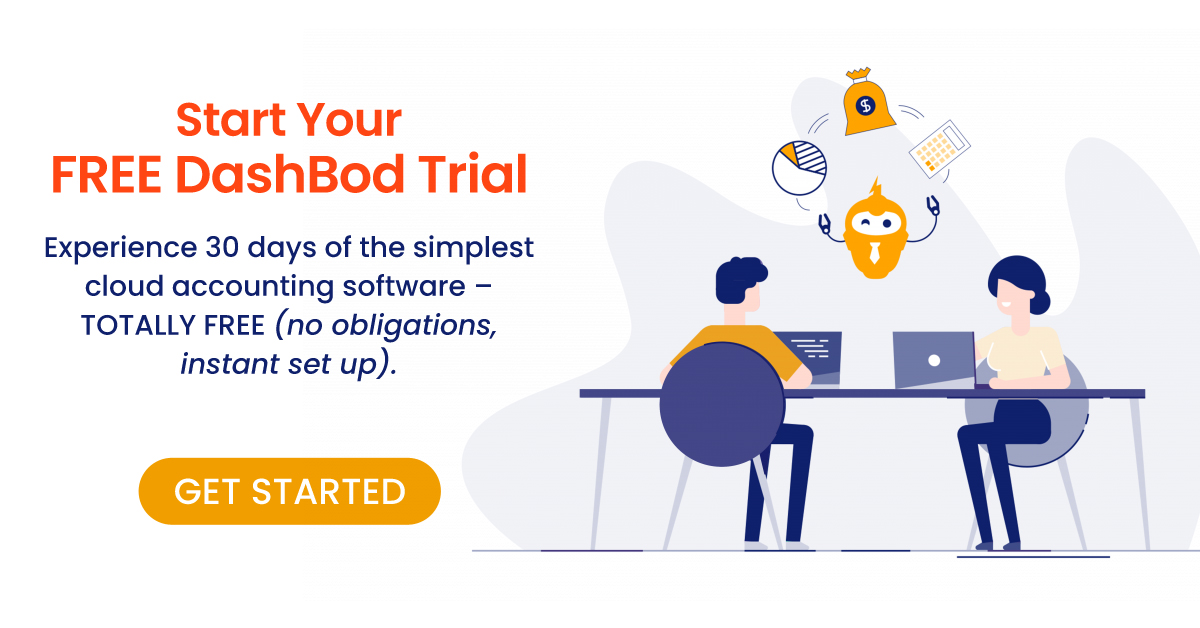Cloud computing and business
Cloud computing (aka The Cloud) is simply using the internet to access software and storage, rather than physically installing it in a computer.
In the early days, businesses weren’t aware they had access to cloud-based tech, with obvious online services such as Gmail.
Then other platforms like Dropbox and iCloud soon followed. Young and old, all around the world, people hopped on to the cloud.
But somehow, when it came to cloud accounting, small business owners and traditional accountants were resistant.
What is cloud accounting?
Cloud accounting, or online accounting, serves a similar function as cloud computing, but specifically as it relates to accounting and bookkeeping software.
The truth is, old school accounting sucks up far too much of your business’ time and effort (even an accounting student in school knows that it’s way too tedious and error-prone).
Cloud software can save your company time and money, while drastically improving accuracy and efficiency. Having everything run automatically is the most exciting thing that has happened to the accounting industry in recent years.
How cloud accounting can help a small business
87% of companies have felt an acceleration in their businesses by incorporating cloud in their business processes, a McAfee Report.
Cloud-based accounting software can help streamline all of your accounting processes and it benefits your small business in several different ways.
You might be interested in: How to choose the best payroll and accounting software for your small business
Get a clean audit trail
One of the biggest reasons why a small business would move to cloud accounting is they want to get away from Excel.
Many growing companies are constantly on the lookout for investors. And when that time comes, you better have all the historical information they want. They want to know the company has solid fundamentals, and nothing spells strong like clean and detailed financial statements.
A proper audit trail ensures your data cannot be compromised. Your new cloud accounting partner also records every business transaction, no matter how small or big. This includes sales contracts, payments to employees, and more.
Having a complete audit trail reassures investors about the validity of the company and meets the tax department’s needs.
Access data at any time, from anywhere
Things are always changing and improving. The last thing a small business needs is to get stuck with one type of computer hardware because their software isn’t compatible with any others.
The cloud changes all that. In some cases, all you need is a mobile device with internet connectivity, making cloud accounting far cheaper than desktop-based solutions.
Business owners are always on the move. And for companies with teams in multiple countries, everyone needs to be in sync. With cloud accounting, key players can monitor account balances, outstanding invoices, overall cash position and many other reports, anywhere, 24/7.
Cost of ownership is lower than traditional accounting software
Your accounting software updates automatically, without user intervention. There really is nothing to install and maintain. You won’t have to deal with the headache of stopping work to allow the platform to update, or call tech support every now and then.
This results in an overall reduction in cost. As you can see, the cloud enables accounting teams and small business owners to focus on core business activities.
You might be interested in: Business forecasting software to grow your company – cashflow, budgeting, reporting
Up-to-date information
Speaking of updates, your small business will be equipped to manage its finances better and more accurately. This is especially important around tax time when data will be shared with your financial controller.
With regular updates, your financial tax information will always be up-to-date and ready to share. Using a cloud accounting platform like DashBod that’s built for SMEs in Singapore has another perk.
Because the support centre is in Singapore, you can get help fast, and enquire about any other updates much more easily.
Store and manage all your data in one place
Gone are the days of paper-filled desks and Excel icons hanging around in every corner of your desktop.
Cloud accounting platforms give you an easy-to-use dashboard that allows you to always be in the know of your financial health. Unlike Excel sheets where you have to set formulas up by yourself (that have errors appearing all the time), you don’t have to set up this dashboard by yourself.
When you have a clear financial view from the start, you can make informed business decisions with confidence. No more pulling out folders and switching between tabs.
Plus, your company’s real-time financial data is kept in one central place – online, in the cloud. Bank statement lines are fed into your cloud accounting software – it’s automatic and reduces the amount of manual data entry and small yet costly mistakes to the business.
What about security?
Any discussion of cloud technology inevitably brings up concerns pertaining to security and data privacy, as people quickly realise they no longer ‘own’ their data (and sometimes, their customers’ data).
We hear it in the news – data breaches, hacking and leaked information. It happens to the biggest brands. Even governments aren’t spared!
The good news? Your software provider is responsible for this. And in the case of DashBod, the team spends significant time and resources making sure that all the servers are maintained at a world-class level of security.
With two-factor authentification and Singpass login access, your data and your customers’ data is protected within a fortress.
Work smarter with the cloud
For accountants, cloud accounting means a more efficient compliance workflow. Instant report generation, lower chances of duplication or other errors, and more time advising on how to maintain and grow the business.
And for bookkeepers, cloud accounting means faster documentation, less time at the desk doing data entry and more time helping the business reduce costs or improve their systems.
Finally, for business owners, cloud accounting means a flexible way to run the company. Have confidence that you have an up-to-date picture of how your business is doing and what actions you should be taking to improve that.
When data is fluid and accessible, the possibilities are endless. When analyses are accurate, a business’ potential is infinite.



